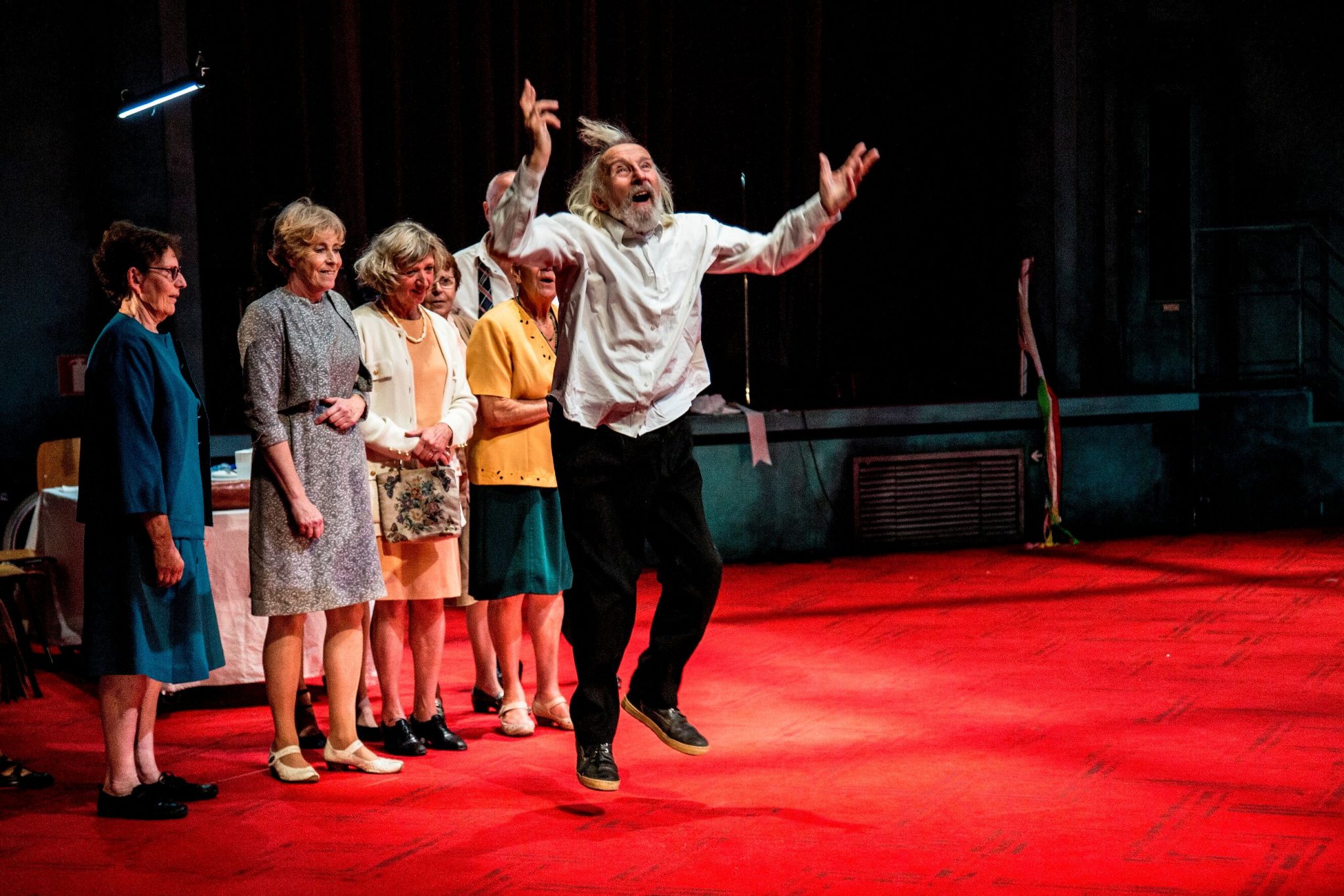The Barbican’s iron curtain rises to reveal a dark stage, vast in size and lit solely by the glow seeping through a set of swinging doors. Tall, curtained walls tower over the audience intimidatingly, the eeriness of the empty space intriguing. As a woman appears from the darkness, waiting to see an unnamed figure, her handbag and coat suddenly becoming bewitched, flinging her about the stage. What does this mean, you may wonder? That is a question you’ll find yourself asking frequently throughout Father (Vader).
Following the positive reception of Moeder (Mother) at last year’s edition of the London International Mime Festival, Peeping Tom return to the festival with the second instalment of the familial trilogy. Focusing this time on the family patriarch, Father features Leo (Leo de Beul), a man who finds himself growing old in a care home, his only visitor being his son (Simon Versnel), who would rather be anywhere else. The play seeks to remind audience members of the importance of caring for and respecting your elders, while exploring the role and “myth” of the father figure in our society.
At least, this is meant to be the purpose of Peeping Tom’s production. While it does indeed depict the strained relationship between a father and his son, there are many breaks from their reality. Actually, much of the play’s focus seems to veer instead toward the people who care for Leo, who believe that his presence in the home is having an effect on them. Said effect results in frequent episodes of bizarre, unnatural behaviour as the staff convulse and writhe around the stage or conjure incomprehensible scenes. There is no denying that some of these scenes are amusing to watch and that the performers’ contortions are impressive; however, that doesn’t mean that they belong in this setting. Eventually, it becomes exasperating trying to decipher what these incidences mean and how they relate to the story. In fact, the farcical nature becomes unsettling when considering the play’s focus on the old, the fragile, and anyone else who may need help from others.
In turn, Father has the potential to strike a nerve with some audience members in the way it depicts care homes, particularly in how residents are (mis)treated by staff. Though Peeping Tom may have intended to emphasise the elderly’s vulnerability as a reason why it is important to care for your elders as they grow old, to convey such a message by negatively portraying care homes is problematic – in spite of the strange behaviour of its employees. To have Leo’s son only realise the error of his ways after being trapped inside the home doesn’t help matters either. Watching some of the older cast cower in fear as a staff member walks by, and later seeing Leo shiver and wail as he’s given a sponge bath, are both uncomfortable scenes to watch. Towards the play’s conclusion, there is a scene when Leo’s son comes onstage in a nappy, only to then be stripped and wiped clean by a carer. It is during this undignified and humiliating scene that one audience member begins to cackle with laughter – so loud that the rest of the audience begin laughing at her. It cannot have come at a worse time – a moment when the characters’ frailty is most obvious. Yet it is no surprise that she reacts in such a way, for in Father the serious and the nonsensical are blurred together throughout.
It is mainly in scenes where Leo defies his age that uncorrupted joy can be found. The image of Leo as a wheelchair-bound, frightened old man is forgotten as Leo sings at the piano or jumps around the stage, peacocking for the female residents of the care home. His charisma wins the audience and his fellow residents over, leaving a smile on your face. If only Father truly respected its patriarch and kept Leo as the centre of attention.
